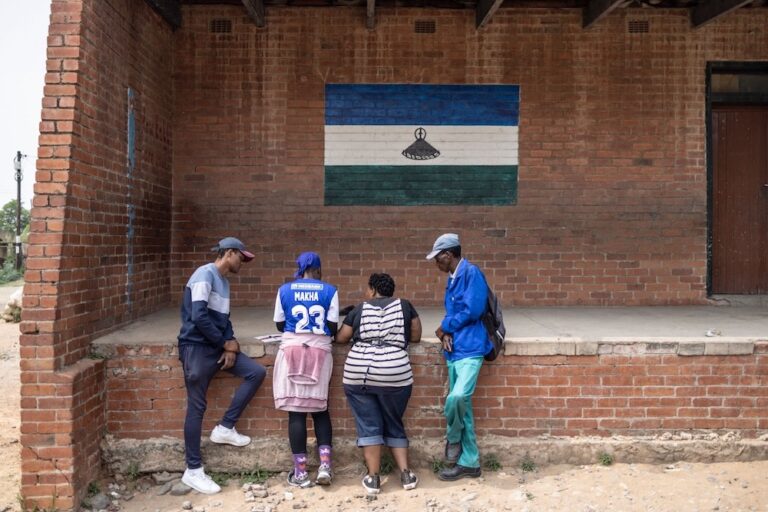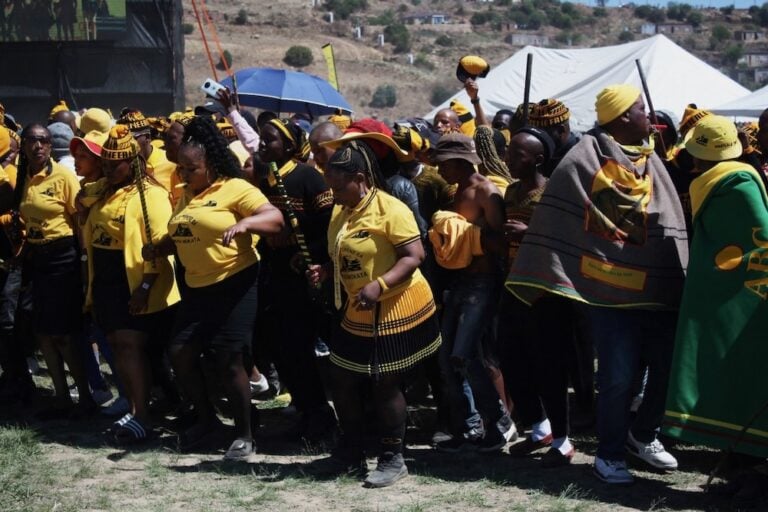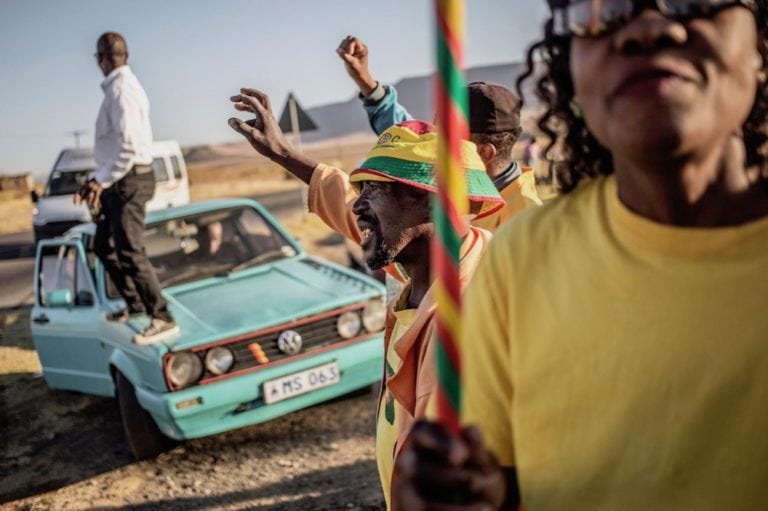(MISA/IFEX) – The publisher and editor-in-chief of “MoAfrika Newsweek” magazine, Candi Ramainoane, was cleared of contempt of court charges by Justice Winston Churchill Maqutu on 9 January 1998. Ramainoane ‘s charges came from an application filed by four cabinet ministers. The four wanted the court to cite him for contempt for allegedly ignoring an earlier […]
(MISA/IFEX) – The publisher and editor-in-chief of “MoAfrika Newsweek”
magazine, Candi
Ramainoane, was cleared of contempt of court charges by Justice Winston
Churchill Maqutu on 9 January 1998. Ramainoane ‘s charges came from an
application filed by four cabinet ministers. The four wanted the court to
cite him for contempt for allegedly ignoring an earlier court order barring
“MoAfrika” from publishing any defamatory statements about them while a
defamation suit involving the same ministers was active in court.
**Updates IFEX alert of 2 September 1997**
In 1997 the four ministers filed a US$2.7 million defamation claim against
“MoAfrika” which is still before the court. The four ministers are Deputy
Prime Minister and Minister of Home Affairs Pakalitha Mosisili, Minister of
Labour Notshi Molopo, Minister of Justice Sephiri Motanyane and Minister of
Natural Resources, Shakhane Mokhehle (younger brother to the Prime Minister
Ntsu Mokhehle).
In passing the judgment, Justice Maqutu said he had no basis to cite
Ramainoane for contempt because the application by the ministers was vague.
Justice Maqutu said where there was ambiguity a presumption is not to be
made in favour of wrongdoing. He said this contempt of court consisted of
intentionally disobeying a court order (but) where its interpretation is
not obvious, it is not easy to convict of contempt of court.
“If the style of journalism of the applicant was an issue and the order
sought to restrain it, it would be understandable. I had no previous issues
of the newspaper to compare with. All this information was left out of the
papers before me,” he said. He said he had no basis of even suggesting that
“MoAfrika” had disobeyed earlier court orders.
Justice Maqutu also observed that there is uncertainty and a lack of clarity
in Lesotho’s defamation laws because the country has borrowed heavily from
foreign jurisdictions. “Lesotho has not yet matched subordinate laws with
freedom of expression as stated in our constitution.
We have largely based our laws on Roman Dutch Law of defamation as received
from the Cape of Good Hope and modified by English law of slander and
libel.” He said the country on the other hand had a Bill of Rights for the
protection of fundamental human rights and freedoms which is largely copied
from the United States of America. “Our courts still have to really say what
our law as modified by the constitution really mean. What makes matters
worse is that our media law is confused with the media law of the United
States of America,” he noted.
Background Information
The defamation case against “MoAfrika” where the four ministers are
claiming US$2.7 million compensation has been postponed following an
argument between “MoAfrika” and the ministers on the use of the Attorney
General to represent ministers in a private matter at the expense of the
state. On August 11, the High Court ruled against the ministers’ use of the
Attorney General. (See IFEX alert) But the Appeal Court will have final say
and will only sit in June this year .


